Veneers in Israel
Search and Compare the Best Clinics and Doctors at the Lowest Prices for Veneers in Israel
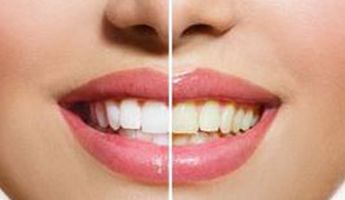
Find the best clinics for Veneers in Israel
No pricing info available
Vietnam offers the best prices Worldwide
Price: $ 1
From 122 verified reviews
fadi hreaz, 27 August 2020
Hospital gives reasonable treatment but poor sorting
Dr. Ratner's Dental Clinic, located in Arison New Hospitalization Building, Tel Aviv, Israel offers patients Veneers procedures among its total of 55 available procedures, across 2 different specialties. Currently, there's no pricing information for Veneers procedures at Dr. Ratner's Dental Clinic, as all prices are available on request only. All procedures and treatments are undertaken by the lead specialist at the Dental, and they are not accredited by any recognized accreditations institutes
Udental, located in Arison New Hospitalization Building, Tel Aviv, Israel offers patients Veneers procedures among its total of 38 available procedures, across 2 different specialties. Currently, there's no pricing information for Veneers procedures at Udental, as all prices are available on request only. All procedures and treatments are undertaken by the lead specialist at the Dental, and they have multiple recognized accreditations, including: CQC - Care Quality CommissionGDC - General Dental CouncilCQC - Care Quality CommissionMDU - Medical Defence UnionBACD - British Academy of Cosmetic DentistryAccreditation Programme of Health OrganizationBDA - British Dental AssociationGDC - General Dental CouncilADI - Association of Dental ImplantologyBSDHT - British Society of Dental Hygiene and TherapyBACD - British Academy of Cosmetic DentistryMDU - Medical Defence UnionInvisalign ProviderBSOI - British Society of Oral ImplantologyBDA - British Dental Association Practice Scheme Gold MemberBSOI - British Society of Oral ImplantologyBDA - British Dental AssociationADI - Association of Dental ImplantologyBSOS - British Society of Occlusal StudiesBSOS - British Society of Occlusal StudiesBSDHT - British Society of Dental Hygiene and Therapy
DenTech Cares Your Advanced Dental Clinic, located in Ramat Yam St, Herzliya, Israel offers patients Veneers procedures among its total of 36 available procedures, across 2 different specialties. Currently, there's no pricing information for Veneers procedures at DenTech Cares Your Advanced Dental Clinic, as all prices are available on request only. All procedures and treatments are undertaken by the lead specialist at the Dental, and they are not accredited by any recognized accreditations institutes
- Home
- Israel
Compare Before & After Photos of _procedure_photos.phpVeneers
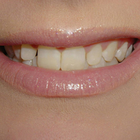
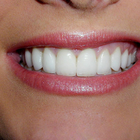
Front view
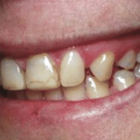
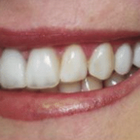
Half-side view
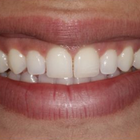
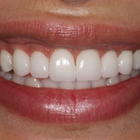
Front view
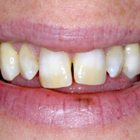
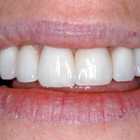
Front view
WHY US?
At Medijump, we're making medical easy. You can search, compare, discuss, and book your medical all in one place. We open the door to the best medical providers worldwide, saving you time and energy along the way, and it's all for FREE, no hidden fees, and no price markups guaranteed. So what are you waiting for?

Free

Best Price

Widest Selection

Risk-Free
What you need to know about Veneers in Israel

Dental veneers are thin covers that are attached to the surface of teeth to enhance their appearance. The non-invasive dentral procedure is previously popular among those with damaged or discolored teeth. Nowadays, however, the procedure is seen as the ideal method of achieving the ‘perfect smile.'
Veneers can be used to hide uneven, misaligned or simply imperfect teeth. The veneers are cemented over the existing teeth and fixed into place – there are two main types of veneer; Porcelain and Composite. Porcelain veneers are more expensive and appear more natural, being made in a laboratory so require multiple visits. There is often the need to alter the existing teeth, removing some of the mass. Composite veneers are made of the same materials used for cavity fillings. They can usually be made quickly, and are sculpted directly on the teeth instead of in a laboratory. Thus allowing the procedure to be done in a day.
What does a Veneers Procedure Involve?
Veneers are used primarily for aesthetics. This type of treatment procedure is perfect for people who have gaps in their teeth, stains, as well as people who may have chipped a tooth. Veneers are custom-made shells designed to fit the shape of your teeth and to be attached to your front teeth to improve the size, shape, color, and length.
Two main types of veneers are:
- Composite Veneer - this type can be created by your dentist on the same day and directly applied to your teeth. You will only need a single appointment to complete the procedure.
- Porcelain Veneer - this type is manufactured in a laboratory. Opting for a porcelain veneer will require you to have two appointments. First, is to prepare your teeth (enamel removal) and mold a model of your teeth to be created in the lab. The second is to finally cement your veneers onto your teeth.
The most commonly used type of Veneer is the Porcelain Veneer as it appears more natural and can resist stains better than composite veneers. Besides the two main types of veneers, some dentists may also offer no-prep veneers. These may include specific brands of procelain veneers like Vivaneers and Lumineers. They are less invasive to apply since the layers of tooth under the enamel aren't removed.
In terms of anesthetics, local anesthesia is not usually required while undergoing the whole procedure. However, depending on how you handle pain and discomfort, you may request to receive local anesthesia or sedation.
Aside from giving you a pleasing smile, veneers are resistant to staining and offer the best fix to broken or damaged teeth.
How Long Should I Stay in Israel for a Veneers Procedure?
This type of procedure is an outpatient treatment, meaning you may be able to go home after undergoing the procedure. However, you will be required to do a follow-up check-up with your dentist to assess the placement of your veneers and in most cases, the procedure has to be carried out over 2 separate occasions, just a day or two apart. Since this is a non-invasive treatment, stitches are not required, but you will be required to stay in Israel for at least a few days.
What's the Recovery Time for Veneers Procedures in Israel?
There is actually no recovery time after the placement of your veneers. You can also return back to your daily routines including exercise immediately after your trip. As for the enamel removal, you may experience some mild discomfort for about a week. It is best that you avoid very hot or cold foods, including hard, chewy or crunchy food. When your sensitivity wears off, you can return to your normal dietary habits.
What sort of Aftercare is Required for Veneers Procedures in Israel?
Once your dental veneers have been placed and you have completed the whole procedure, you should commit yourself to good oral hygiene, regular visits to your dentist and a good healthy lifestyle. Dental Veneers can last beyond 10 years now, however, just like your natural teeth, veneers are also still susceptible to damage. This is why aftercare is very important to help with the longevity of your new teeth.
What's the Success Rate of Veneers Procedures in Israel?
Over the past years, many studies have reported that over 91% of people who have had dental veneers experienced highly positive results. However, potential risks and side effects after undergoing this procedure are a possibility. Just like any other dental restoration, dental veneers can have some side-effects, for example:
- Tooth sensitivity - since this procedure will require the removal of some enamel, your teeth will become slightly sensitive, following the placement of your veneers.
- Response from gum tissues - your gum tissue might take some time to adjust to your newly placed veneers. Expect to have some minor inflammation and/or discomfort in your gums.
- Risk of trauma - once your teeth’s enamel is removed, it will become more sensitive, thus it will be even possible for the pulp within your teeth to die.
- Possible Issues with placement - it's possible for your teeth to have issues with decay or chipping along the outer portion of your veneers. Gum irritation may also be possible. Other problems may include rough-edged veneers and overhanging veneers.
- Overall Discomfort - experiencing some discomfort after the procedure is to be expected. If you are particularly sensitive, it is advisable that you take an over the counter medication to help you relax and treat your pain.
Are there Alternatives to Veneers Procedures in Israel?
You also have to be aware that this type of treatment option is not for everyone. If you are not a good candidate to undergo the procedure, note that there are still possible alternatives that will be suited for you. These alternatives may include:
Orthodontics - if you have severely crooked teeth or malocclusion, dental veneers are not for you. You may want to consider a more comprehensive orthodontic procedure to treat your case.
Dental crowns - these are quite similar to dental veneers. These are also custom-made to match the shape of your teeth. However, unlike veneers, a crown extends all the way around your tooth, meaning your dentist will remove a large portion of your dental structure. These crowns are perfect for patients who have considerable damage that affects the strength and structure of their teeth.
Bonding - often called composite veneers. This is typically for patients with an insufficient amount of tooth enamel.
Whilst the information presented here has been accurately sourced and verified by a medical professional for its accuracy, it is still advised to consult with your doctor before pursuing a medical treatment at one of the listed medical providers
No Time?
Tell us what you're looking for and we'll reachout to the top clinics all at once
Enquire Now

Popular Procedures in Israel
Prices Start From $1

Prices Start From $1

Prices Start From $48

Prices Start From $1

Prices Start From $1

Prices Start From $1

Prices Start From $11

Prices Start From $45

Recommended Medical Centers in Israel for Veneers

- Interpreter services
- Translation service
- Religious facilities
- Medical records transfer
- Medical travel insurance
- Health insurance coordination
- TV in the room
- Safe in the room
- Phone in the room
- Private rooms for patients available

- Interpreter services
- Translation service
- Religious facilities
- Medical records transfer
- Medical travel insurance
- Health insurance coordination
- TV in the room
- Safe in the room
- Phone in the room
- Private rooms for patients available

- Interpreter services
- Translation service
- Religious facilities
- Medical records transfer
- Medical travel insurance
- Health insurance coordination
- TV in the room
- Safe in the room
- Phone in the room
- Private rooms for patients available

- Interpreter services
- Translation service
- Religious facilities
- Medical records transfer
- Medical travel insurance
- Health insurance coordination
- TV in the room
- Safe in the room
- Phone in the room
- Private rooms for patients available

- Interpreter services
- Translation service
- Religious facilities
- Medical records transfer
- Medical travel insurance
- Health insurance coordination
- TV in the room
- Safe in the room
- Phone in the room
- Private rooms for patients available

- Interpreter services
- Translation service
- Religious facilities
- Medical records transfer
- Medical travel insurance
- Health insurance coordination
- TV in the room
- Safe in the room
- Phone in the room
- Private rooms for patients available

- Interpreter services
- Translation service
- Religious facilities
- Medical records transfer
- Medical travel insurance
- Health insurance coordination
- TV in the room
- Safe in the room
- Phone in the room
- Private rooms for patients available

- Interpreter services
- Translation service
- Religious facilities
- Medical records transfer
- Medical travel insurance
- Health insurance coordination
- TV in the room
- Safe in the room
- Phone in the room
- Private rooms for patients available

- Interpreter services
- Translation service
- Religious facilities
- Medical records transfer
- Medical travel insurance
- Health insurance coordination
- TV in the room
- Safe in the room
- Phone in the room
- Private rooms for patients available
Veneers in and around Israel
About Israel
Israel celebrated 70 years of independence in 2018 - in what is a truly ancient land. The world’s only Jewish and democratic state is home to sites sacred to Judaism, Christianity, and Islam. While these holy places are truly unique attractions, there is more to Israel than religious heritage and complex politics. Jerusalem is the official capital and holy city to three world religions, previously mentioned, while Tel Aviv brims with beaches and bustles with urban vitality. Then there’s the Dead Sea and Masada, the stark, stunning Negev, and fertile Galilee. The number of museums and cultural institutions per relative area is larger in Israel than anywhere in the world.
Home to more than 30 JCI accredited facilities, medical tourists visit Israel for a variety of procedures, but particularly dental and tertiary care. Veneers procedures are also a popular choice.
Popular Parts of Israel
Israel is an alluring destination for those who want to appreciate its astonishing religious sites, stunning natural beauty, and remarkable historic relics.
- Tel Aviv is the economic and technological center of Israel, with a population of over 400,000; it is the most populous city in the country. Located on the Mediterranean coastline, the city offers sunny beaches for any sun-chaser. The city has impressive architecture and has a modern cosmopolitan landscape. Tel Aviv Museum of Art houses works by international artists. In addition, it has a nonstop nightlife with a huge party option to fit every taste.
- Haifa is the country’s third-largest city and it is one of Israel’s high-technology centers as well as a busy working port. The city may have an industrious image, but with a number of museums, gardens, and shrines, it is an amazing place to travel to. The Baha’i Gardens are possibly the most popular attraction as it is the final resting place of the prophet-herald of the Baha’i Faith. Tourists can have a bird’s eye view from the platform at the top or take a free Panorama Tour.
- Eilat is located at the southernmost tip of Israel and is the only Israeli city on the Red Sea. Families come to the city to have a good time on the beach and party-goers come for its all-night parties. The turquoise waters invite visitors to snorkel, scuba dive, or swim. It is recommended to stay in an Oasis at night to get a chance to stargaze under a clear desert night sky. During the day, visit the Eilat Mountains to have a beautiful view of an ancient desert.
- Tsfat or Safed is a quaint mountain-top city surrounded by pine forests. Located at an elevation of 900 meters, the city enjoys warm summers and cold winters. It is a popular summer holiday resort frequented by Israelis and foreign visitors. Here, tourists will find synagogues, art galleries, and unique crumbling stone houses.
- Jerusalem is one of the oldest cities in the world and three major Abrahamic religions (Judaism, Islam, and Christianity) considered it a holy city. Even though it has been destroyed and rebuilt over thousands of years, the city manages to endure its spiritual magnetism. It is overflowing with holy sites, diversity, and layers of history.
Weather and Climate in Israel
Israel is a year-round destination but the temperatures in the city vary widely. The coastal areas such as Tel Aviv and Haifa experiences a typical Mediterranean climate where the winters are rainy and the summers are hot. The area around Northern Negev has a semi-arid climate with hot summers and cool winters. The Southern Negev has a desert climate with extremely hot summers and mild winters. On the other hand, mountainous regions have pleasant summer and cold winters with a little snowfall.
Generally, the winter months from November to March are the coldest months in the country. When mountainous areas such as Jerusalem receives snowfall, the coastal areas experience heavy rainfall. Summer starts in June and ends in August and it is the hottest season in every part of the country, especially in the desert area where the heat can be overbearing. The seasons of spring and autumn have the best weather, with pleasant temperatures and fewer rainy days.
Getting Around in Israel
Ben Gurion Airport is the main gateway to Israel and it is the busiest airport in the country located 20 kilometers southeast of Tel Aviv and 45 kilometers northwest of Jerusalem. The airport is ranked among the five best airports in the Middle East. It serves both domestic and international flights to and from numerous major cities around the world. There is two main passenger terminal at this airport. Terminal 1 serves domestic flights and international budget airlines such as EasyJet and Vueling, while Terminal 3 serves international flights.
Since the distance between one city to another is relatively short, getting around Israel is easy. The quickest and most convenient way is by domestic flights. The tickets are not very expensive and deals are often available online. Sometimes a one-way ticket can cost as little as 89 NIS (25 USD). Buses are also convenient but can be slow during traffic jams. Buses connecting Jerusalem, Tel Aviv, and Haifa depart very frequently. A one-way ticket from Tel Aviv to Jerusalem is around 25 NIS (7 USD). Israel’s main bus company is the Egged Bus Company. Trains are also available and very comfortable. They are a lot faster than the bus but the cost can be higher.
Taxis are widely available and can be hailed directly from the streets. Although most taxis are metered, you can agree on a fixed rate and be aware that some drivers are known to overcharge tourists, so you should insist on using the meter and make sure that it is reset to the base fare after you get in. The base fare is normally around 12.30 NIS (3.5 USD). There is also a shared taxi van known as Sherut. It is a good option to travel between Tel Aviv and Jerusalem or Tel Aviv and Haifa.
Tourist Visas in Israel
All visitors must hold a passport valid for at least six months after the date of departure from Israel. Citizens of 99 countries including the European Union, Canada, Singapore, Russia, and the United States do not require a visa to enter the country for up to 3 months. Nationals not listed on the visa exemption agreement need to obtain a visa and should contact their nearest embassy of Israel. Citizens of 25 countries require a confirmation from the Israeli government before a tourist visa is issued.
Additional Information
- Local Currency: The currency is the New Israeli Shekel (NIS) and 1 USD will get you 3.28 NIS.
- Money & Payments: ATMs that accept international cards are widespread (mostly Visa and MasterCard), except at border crossings with Egypt and Jordan. Credit cards are widely accepted and tipping is common but normally not expected.
- Local Language: The official language is Hebrew and Arabic has a special status under Israeli law as a semi-official language. Russian is spoken by around 20% of the population. Most of the population can speak English fairly well as it is required in schools and universities.
- Local Culture and Religion: More than 70% of the population follows Judaism. There are small groups of Muslims, Christian, and Druze. Muslims are the largest minority group in the country.
- Public Holidays: The country celebrates major national holidays as well as Jewish holidays such as Independence Day, Jerusalem Day, and Hanukkah.
Popular Searches
- Plastic Surgery in Thailand
- Dental Implants in Thailand
- Hair Transplant in Thailand
- Breast Augmentation Thailand
- Gastric Sleeve in Thailand
- Gender Reassignment Surgery in Thailand
- Laser Hair Removal in Bangkok
- Botox in Bangkok
- Dermatology in Bangkok
- Breast Augmentation in Bangkok
- Coolsculpting in Bangkok
- Veneers in Turkey
- Hair Transplant in Turkey
- Rhinoplasty in Turkey
- Stem Cell Therapy in Mexico
- Rhinoplasty in Mexico
- Liposuction in Mexico
- Coolsculpting in Tijuana
- Rhinoplasty in Korea
- Scar Removal in Korea
- Gastric Sleeve in Turkey
- Bone Marrow Transplant in India
- Invisalign in Malaysia
- Plastic Surgery in the Dominican Republic
- Tummy Tuck in the Dominican Republic
- Plastic and Cosmetic Surgery in Poland
- Rhinoplasty in Poland
- Hair Implant in Poland
- Dental Implants in Poland
- IVF in Turkey



